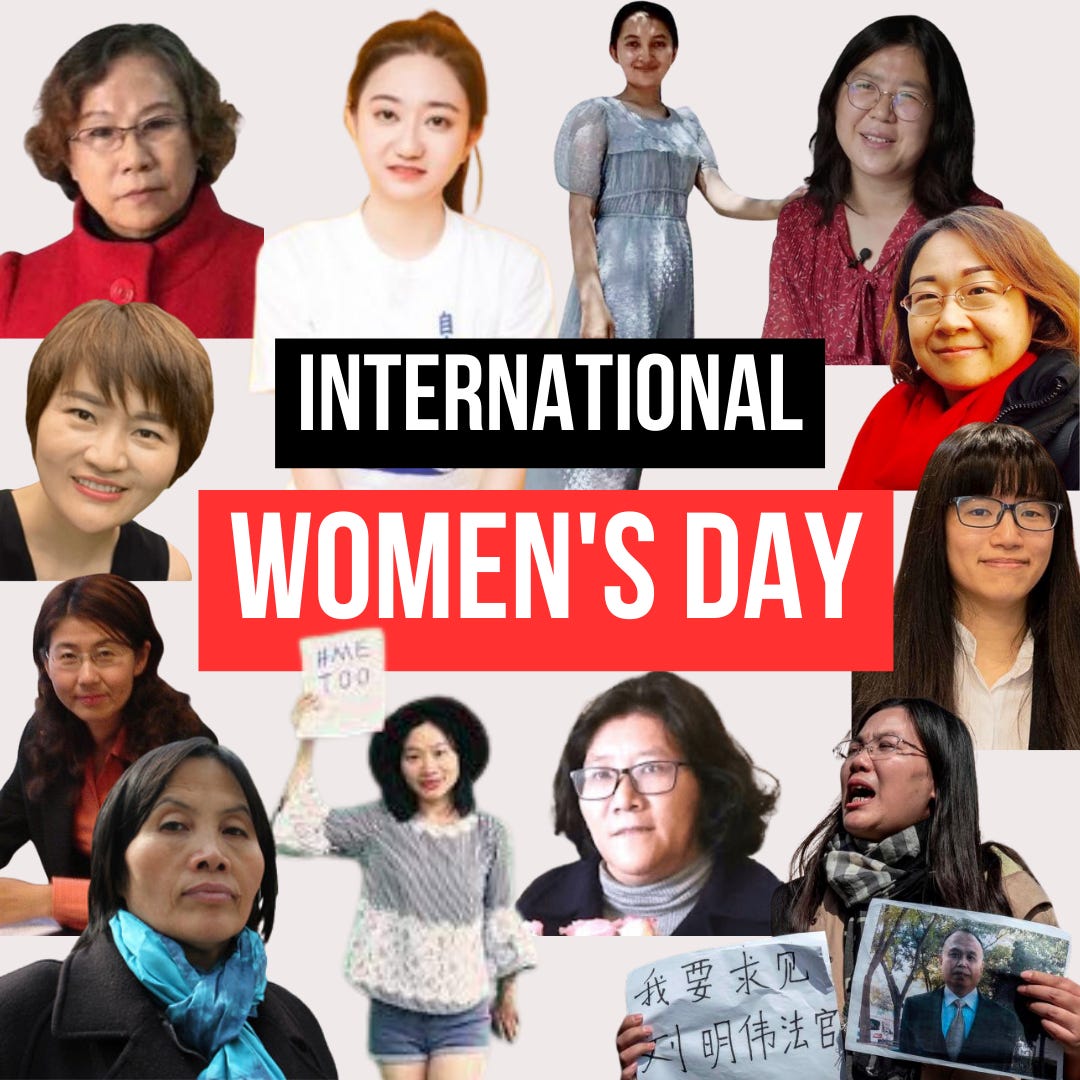On International Women's Day, HRIC Honors Cao Shunli and Brave Women Human Rights Defenders
March 8, 2024
On International Women’s Day, Human Rights in China honors the brave women who have sacrificed their safety, their freedom, and even their lives to defend human rights in China. Their ranks include Huang Xueqin, a pivotal figure of the #MeToo movement; Zhang Zhan, a citizen journalist whose reporting on Wuhan led to her detention; Kamile Wayit, a young Uyghur woman who dared to post about the White Paper Movement; and Chow Hang-tung, a lawyer who fought for labor rights and freedom of speech in Hong Kong—all of these women are currently imprisoned for the crime of speaking up and standing up for what they believed in. Countless female human rights defenders have faced persecution, imprisonment, and even torture at the hands of the Chinese authorities because of their work. We applaud and honor their bravery in persisting despite the risks, and urge the international community to remember their plight and continue to put pressure on the Chinese government to cease the arbitrary detention and persecution of human rights defenders.
This International Women’s Day, Human Rights in China pays special remembrance to Cao Shunli, a brave human rights defender and activist whose life was tragically cut short ten years ago by the Chinese government.
Cao Shunli was born in Beijing in 1961. As a government employee in the late nineties, she spoke out against corruption and was fired for her whistleblowing efforts. She began her activism career as a petitioner, attempting to seek recompense for her grievances from the government while supporting others in the same position. In 2008, she saw that China was set to participate in its first human rights review at the UN, the Universal Periodic Review, and saw it as an opportunity to push the Chinese government to truthfully report its human rights abuses and consult with civil society. For the next few years, she worked tirelessly to document and report human rights abuses in China, particularly in “reeducation through labor” work camps.
Despite resistance and persecution from the authorities, Cao was persistent. She continued to work with other activists to record instances of abuse and submit applications to the Chinese Ministry of Foreign Affairs to participate in drafting the National Human Rights Action Plan, as well as push the government to engage with civil society through sit-ins and other peaceful protests. In 2009, Cao was detained for a year in a “reeducation” camp, where she was tortured and starved. Yet, she still never gave up.
On September 14, 2013, Cao set off to Geneva, where she planned to participate in a training on U.N. human rights mechanisms. She never made it past the Beijing airport. She was detained by Chinese police and disappeared for five weeks, before her family finally received word of her arrest for “picking quarrels and provoking trouble.”
Barely six months later, on March 13th, 2014, Cao Shunli passed away in a hospital in Beijing. The cause was clear: severe medical neglect on the part of the Chinese authorities, who had refused to treat her as her condition deteriorated. Reports of malnutrition and medical complications from October 2013 show that she was at best left to suffer, and more likely intentionally mistreated or even tortured. What is clear is that her fate was the result of persecution from the Chinese government for trying to tell the world about its human rights violations.
Cao Shunli is an inspiration to everyone who believes in human rights. Her bravery, and her sacrifice, should motivate us to stand up and speak out against injustice.





